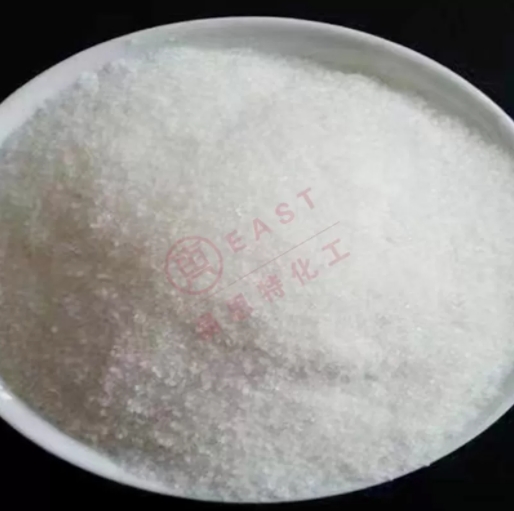What is soda ash used for?
In the modern world, where chemical compounds have become indispensable components of various industries, soda ash stands out as a versatile substance with a multitude of applications. Also known as sodium carbonate, soda ash is a white, odorless powder that has found its way into numerous sectors due to its unique chemical properties. From enhancing our daily lives to revolutionizing industrial processes, soda ash plays an essential role. Let's delve into the myriad of uses that make soda ash a true powerhouse in today's society.
1. Glass Manufacturing:
One of the most significant applications of soda ash is in the production of glass. Glassmaking is an ancient craft that has evolved over centuries, and soda ash has been a key ingredient in this process for a long time. When mixed with silica, soda ash reduces the melting point of the mixture, making it easier to shape into various forms. It also serves as a flux, helping to lower the viscosity of the molten glass, which contributes to a smoother glass surface. The glass produced using soda ash finds its way into everything from windows and mirrors to glass containers and even advanced optical equipment.
2. Detergent Industry:
The detergent industry is another major consumer of soda ash. This compound acts as a pH regulator and a water softener in detergents. Hard water, rich in minerals like calcium and magnesium, can interfere with the effectiveness of cleaning agents. Soda ash works to soften the water by binding to these minerals, allowing detergents to work more efficiently. This property has a profound impact on our daily lives, as it enhances the cleaning power of laundry detergents, dishwashing soaps, and other cleaning products.
3. Metallurgy:
Soda ash plays an indispensable role in the metallurgical industry, particularly in extracting various metals from their ores. In the process of ore smelting, soda ash acts as a flux, facilitating the removal of impurities from the metal and improving the overall efficiency of the process. Additionally, soda ash is used in the production of certain metals, such as aluminum and copper, as it helps regulate the pH levels and control the chemical reactions during the refining process.
4. pH Regulation:
Soda ash's ability to regulate pH makes it a vital component in various chemical processes. It is used in industries such as textiles, pulp and paper, and water treatment. In the textile industry, soda ash is used to adjust the pH of dye solutions, ensuring the desired color is achieved. In pulp and paper production, it helps control the pH of the pulping and bleaching processes, leading to improved paper quality. Moreover, soda ash is used in water treatment to neutralize acidic wastewater, preventing environmental contamination.
5. Food Industry:
Even the food industry benefits from soda ash's unique properties. It is used as a food additive under the code E500, functioning as a raising agent in baked goods. When combined with an acid (usually an ingredient like cream of tartar), soda ash releases carbon dioxide gas, creating bubbles that cause the dough to rise, resulting in lighter and fluffier baked products. However, it's essential to note that its use is regulated and carefully controlled to ensure its safety in food products.
6. Flue Gas Desulfurization:
As concerns about environmental pollution and air quality increase, soda ash has found a new role in the realm of pollution control. Flue gas desulfurization (FGD) is a technology used to remove sulfur dioxide (SO2) emissions from power plants and industrial processes. Soda ash can be used as a reagent in FGD systems to neutralize the acidic sulfur dioxide gas, transforming it into solid waste that can be disposed of safely.
7. Chemical Manufacturing:
Soda ash serves as a critical ingredient in the production of numerous chemicals. It is a precursor for the manufacturing of sodium bicarbonate (baking soda), sodium silicate (used in detergents, adhesives, and construction materials), and sodium chromate (used in various chemical applications, including textile dyeing and corrosion inhibition).
8. Pharmaceuticals:
In the pharmaceutical industry, soda ash has niche applications, particularly in the production of medicines and medical products. It is used as a pH regulator and buffering agent in various drug formulations, ensuring that the medication maintains its stability and effectiveness over time.
In Conclusion:
From the gleaming glass windows that allow natural light into our buildings to the sparkling dishes that adorn our dinner tables, soda ash has left an indelible mark on various aspects of our lives. Its versatility, from glass manufacturing and detergent enhancement to pH regulation and metallurgical processes, showcases its integral role in countless industries. As technology advances and industries continue to evolve, the importance of soda ash in our modern world remains unwavering, cementing its status as a cornerstone of modern chemical applications.
other related news:
https://www.cneastchem.com/news/what-is-sodium-sulfide-used-for.html
https://www.cneastchem.com/news/is-sodium-carbonate-same-as-baking-soda.html https://www.cneastchem.com/news/how-do-you-use-caustic-soda-flakes-for-cleaning.html |


Comments